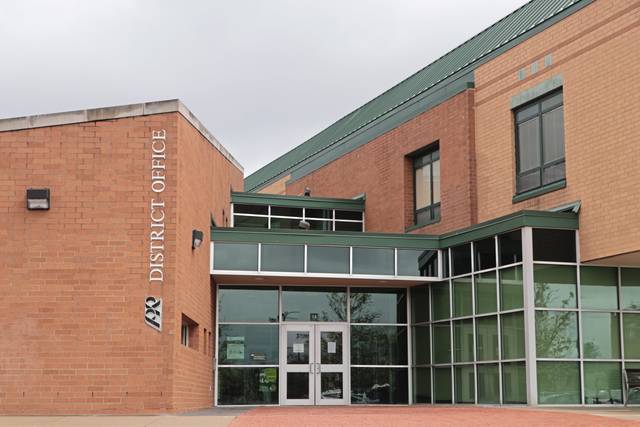https://triblive.com/local/pine-richland-board-chided-for-providing-scant-details-about-closed-door-meetings/
Pine-Richland board chided for providing scant details about closed-door meetings

A lawyer representing several residents of the Pine-Richland School District is accusing the school board of violating the Sunshine Act by failing to provide details of a June 21 closed-door meeting they believe was held to discuss renewing the contracts for the superintendent and assistant superintendent.
School officials say they followed the law when announcing the executive session and that the board is within its rights to negotiate the contracts for the district’s top leaders.
Attorney Jason Richey of the Downtown law firm K&L Gates is representing residents Christina Brussalis, John Joseph Cassidy, Lisa Hillman and Amy Terchick.
The letter sent to district solicitor Don Palmer on July 8 says the residents were “troubled” by the June 21 announcement by board President Peter Lyons that they were moving into executive session to discuss negotiations, personnel and school safety.
Richey said providing such little detail about the nature of the discussions “failed to provide the sufficient specificity required by Pennsylvania’s Sunshine law and told the public nothing.”
“They violated the law by not specifically saying why they were going into executive session,” Richey said. “The lack of transparency is part of the problem. Residents are not sure what’s being discussed, so they have suspicions that they are meeting privately and in secret to renew the contracts, which would be illegal.”
The state’s Sunshine Act or open meeting law requires that: “The specific reason for an executive session must be announced in the public meeting either before or directly after the executive session. The reasons stated by the public agency must be specific, indicating a real, discrete matter.”
“When a board chairman tells a citizen he may not hear the board discuss certain business, he is taking liberties with the rights of that citizen,” Richey wrote in the letter. “And the reason given for this interference must be genuine and meaningful, and one the citizen can understand.
“To permit generalized fluff would frustrate the very purpose of the Act,” he said.
In response to Richey’s letter, district spokeswoman Rachel Hathorn issued a statement saying the board has always complied with the law.
“The Pine-Richland School Board is fully committed to transparency in governance and accountability to the public,” she wrote. “We publicly state the purpose of executive session meetings in general terms (e.g., “Personnel”). … We have always been and remain in full compliance with the Sunshine Act.”
The board, however, acknowledged the concerns raised by residents about the lack of information it provides by giving a more detailed explanation for its executive sessions when it met on July 12.
“The board met in executive session to discuss the annual evaluation and renewal of the superintendent’s contract following our public meeting on Monday, June 21,” said board President Peter Lyons at the July 12 meeting.
Lyons also said the board discussed the contracts for the superintendent and assistant superintendent in executive sessions on July 7 and 12 along, with several other matters.
Melissa Melewsky, a lawyer for the Pennsylvania NewsMedia Association, said the Pine-Richland residents are right to question the board’s commitment to transparency even though the law, as written, does not prohibit the practice of proving one-word explanations for meeting in executive session.
She said case law that provided rulings on discussions about litigation in executive session covers the other times government organizations are allowed to meet in private.
“The courts have been clear that providing generic, one-word reasons for holding an executive session are not enough to meet the requirements of the law,” she said.
“The courts have said and acknowledged that the announcement of an executive session is the public’s shot as to why they were excluded. If they are given a generic reason, it doesn’t enable meaningful oversight.”
The question of whether the board violated the law by negotiating contracts with the superintendent and assistant superintendent in June and this month is still a matter of debate.
Richey cited a 2000 case involving the Pocono School District in which the court ruled that “governing bodies cannot bind their successors” and “cannot enter into a contract which will extend beyond the terms for which the board members were elected.”
But in the district’s response to the letter, officials said the public school code gives them the authority to discuss future contracts.
“The Public School Code specifically provides that the board of school directors shall meet during the last year of the term of the superintendent and at such meeting shall elect or approve a district superintendent to enter into a contract to serve a term of three to five years,” district officials wrote in a response to the Trib about Richey’s letter.
“A school board appointing or reappointing a superintendent or assistant superintendent for a term of three to five years, as required by the School Code, is binding on succeeding boards provided that the appointment or election is done in the last year of the superintendent or assistant superintendent’s term of office,” they said.
Beyond having the right to negotiate the contracts, the board, in its response to Richey’s letter, said it would be “proud to retain both (Superintendent Brian) Miller and (Assistant Superintendent Michael) Pasquinelli through these contract renewals.
“Both have demonstrated an intense commitment to our students and the mission of the district: to focus on learning for every student every day.”
Richey said no decision has been made about whether any legal action will be taken against the district.
“For now, the letter serves as a notification to the board that residents are not happy with the way they are conducting business,” he said.
Copyright ©2025— Trib Total Media, LLC (TribLIVE.com)
